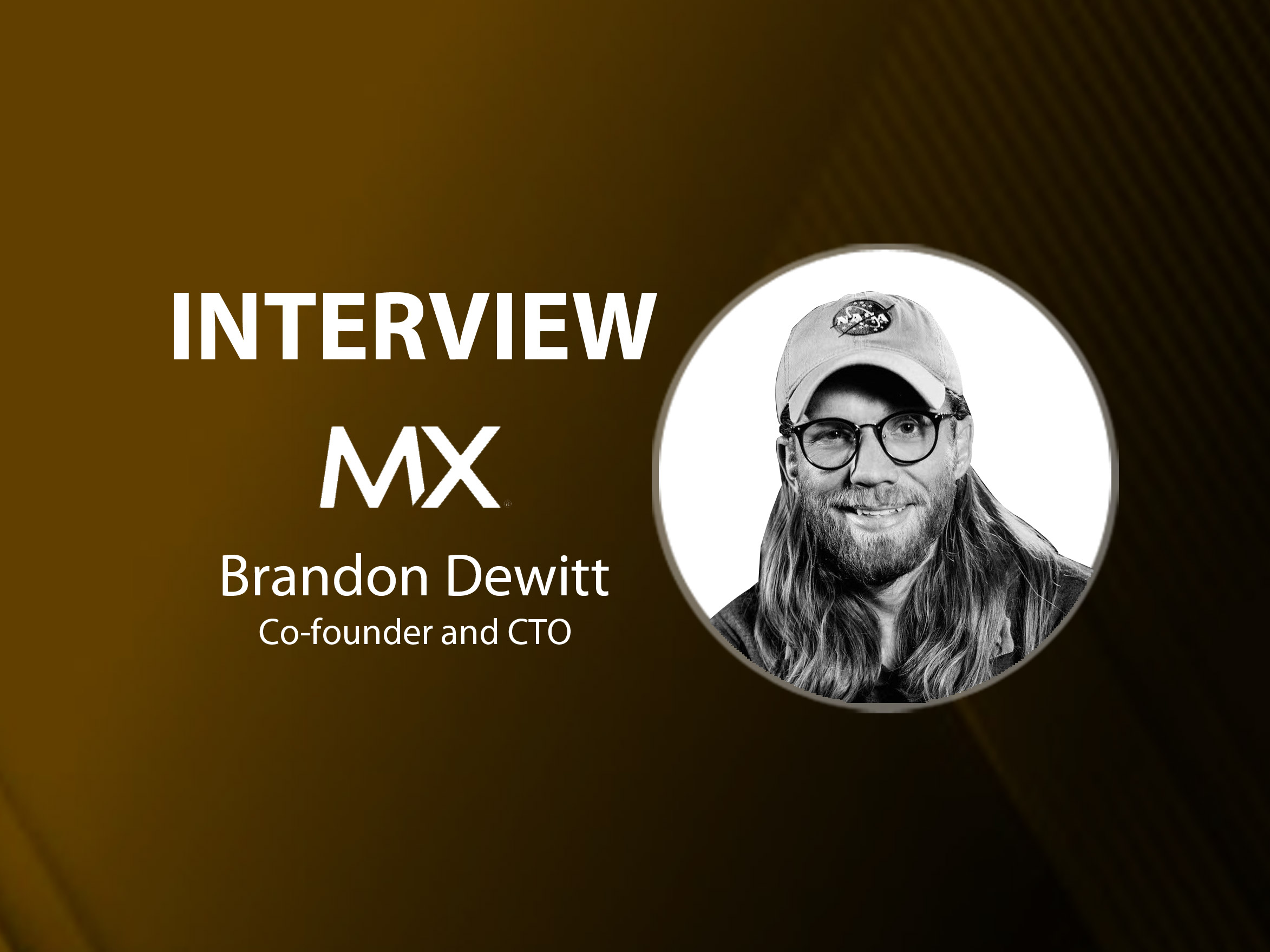Right now, financial institutions and fintechs are struggling to meet the increasing needs of customers in an uncertain economic and global climate opines Brandon Dewitt in this GlobalFintechSeries interview. Catch the complete story to unlock his thoughts and insights on fintech and the impact that new innovations in this segment will have on the industry as a whole.
______
Can you tell us a little about yourself Brandon, what inspired your journey into finance/fintech? If not in fintech, where else or what would you have rather been in or doing?
At my core, I am a creator. As an engineer who ended up in the largest and arguably the most impactful industry on earth – financial services – I’ve been shaped by this philosophy of creating that has guided my journey in what we’ve achieved these past nine years at MX, and what we will achieve in the future. I’m fortunate to be surrounded by very bright people who think rationally, logically, and deeply. We are working together to build software of the highest quality that is purposeful in helping to empower the world to be financially strong.
There is one ongoing experience in particular that has been shaping my life the past few years. In January 2016 during my 33rd birthday party, I was eating dinner with my friends when I suddenly experienced partial paralysis in my face. I learned a few weeks later that I had 14 tumors in my lungs and additional tumors on the left side of my face. Doctors told me I had four to seven months to live. My work team here at MX adopted the mantra that although success was seemingly impossible and certainly improbable, it was necessary. They worked tirelessly to help find a treatment for my unique form of cancer.
Read More: GlobalFintechSeries Interview with Raymond Wyand, CEO & Co-founder at gini
Nine months later, we learned the growth rate of the tumors had halved and in January, the growth rate reached negative-2%. This experience inspired me to rethink my skepticism as it pertains to the financial services industry. Banks have the potential to combat a cancer-like scourge: consumers’ financial stress. Stress, while seemingly innocuous, can creep into our lives and become a killer.
My personal challenges inspired me to start from a place of advocacy and enable real financial strength in consumers, so they see us as partners. Now, more than ever, we need to band together and take an active role in meeting consumers where they are, and when they’re at the point of most need. We must provide the guidance, products and tools to the right user at the right time.
Given your time as Co-founder at My Jibe and now at MX, you’ve worked closely with developing innovative finance solutions. What are your thoughts when it comes to the demand of personal finance products viz a viz platforms/solutions offered by banks? How do you see this demand or the kind of innovations being offered here evolve with time?
Let’s start with the facts: more than 70% of Americans are living paycheck to paycheck and 3 in 10 Americans have no emergency savings at all. The 2008 recession was a disruptive force in the world of finance. The Covid-19 crisis will end up disrupting this industry and society even more. All this financial disruption points to the banks. If you’re a bank and you want to be the primary financial institution for the consumer, you have to be their primary digital provider. That’s the new world of banking we’re living in. Your customers expect you to not only have solid personal finance products, but to aggregate their external accounts, so that when they think of finances, they think of you.
Banking is becoming more about guiding and empowering customers. It’s about being an advocate for the user, guiding them toward better financial success. Then, once you have that trust, you can present them other products and services specifically catered to them. But advocacy is at the heart of it.
What are some of the biggest challenges/impediments to global innovations in fintech according to you?
One big challenge to innovation is regulation. Many current regulations in this industry don’t really apply like they did in the past given today’s global crisis and the evolving financial landscape. Many regulatory hurdles exist because the laws were created long before their time, when the financial industry was much different. Those laws have to change – it’s not about having no regulation, it’s about having the right regulations.
Read More: GlobalFintechSeries Interview with Tim Kelly, CEO & Founder at BitOoda
Could you talk about some of the most innovative fintech apps and platforms in the banking and personal finance management niche that you’ve come across that according to you are set to be new game-changers?
The most innovative fintech apps and platforms are radically disrupting the banks from within while still being mindful and inclusive of the changing rules and regulations of the financial industry from without. This is what we do. We’re in the middle of this digital transformation with many of our financial institution customers and partners.
One example is the recent work MX has done in partnership with Fiserv for Hughes Federal Credit Union. Hughes just launched a successful mobile app to 69,000 users in the middle of the Covid-19 crisis. They did this to help people avoid the spread of the disease by enabling them to bank from home. Many other banks and credit unions are doing the same, and the results will be felt long beyond the current crisis.
What are some of the top tips you would share with global B2B companies who are still defining/setting up their fintech stack?
For global B2B companies that are setting up their fintech stack, it’s important to understand how technology has the power to change people’s quality of life for the better. It’s important to have a partner that will leverage AI-driven tools to better serve your customers along their financial journey. It’s equally important to have a centralized data platform that rapidly integrates fintech innovation to a broad range of banks and credit unions, resulting in more innovation, faster time-to-market and reduced costs.
And, what are some of the top tips you would share with end users when it comes to drawing the most benefits from personal finance apps?
My advice is to evaluate the approach – does the application implement an intelligent approach to financial insights? It’s important that the app has an advocacy-based approach making the user’s life easier rather than more difficult. The end result should be building financial strength and increasing engagement.
What are some of the top tips you would share with upcoming fintech entrepreneurs who are still in the process of inventing new finance tech solutions?
I would tell them: Don’t forget to take into consideration how customer expectations have changed, especially in light of Covid-19. To meet new and growing demands, financial institutions need to provide customers with an advocacy-based banking experience that drives meaningful value in this “new normal” we’re living in.
How would you hope/wish/aim for the fintech segment to alleviate the top pain points B2B users face?
Right now, financial institutions and fintechs are struggling to meet the increasing needs of customers in an uncertain economic and global climate. The industry must take an active role in meeting customers when they’re at the point of most need. And that time is now. We must provide accurate information and helpful guidance to enact a philosophical re-treading of why we chose this profession and what makes it noble. Each consumer interaction gives us the choice to defend that nobility or acquiesce to the default mode of apathy. The foundations of ethical living demand that we act in ways that alleviate pain and embrace the nobility of our profession. To do anything less than that is to cheat life of its beauty.
Read More: GlobalFintechSeries Interview with Lil Roberts, CEO & Founder at Xendoo
Brandon Dewitt is the Co-founder and the Chief Technology Officer of MX

